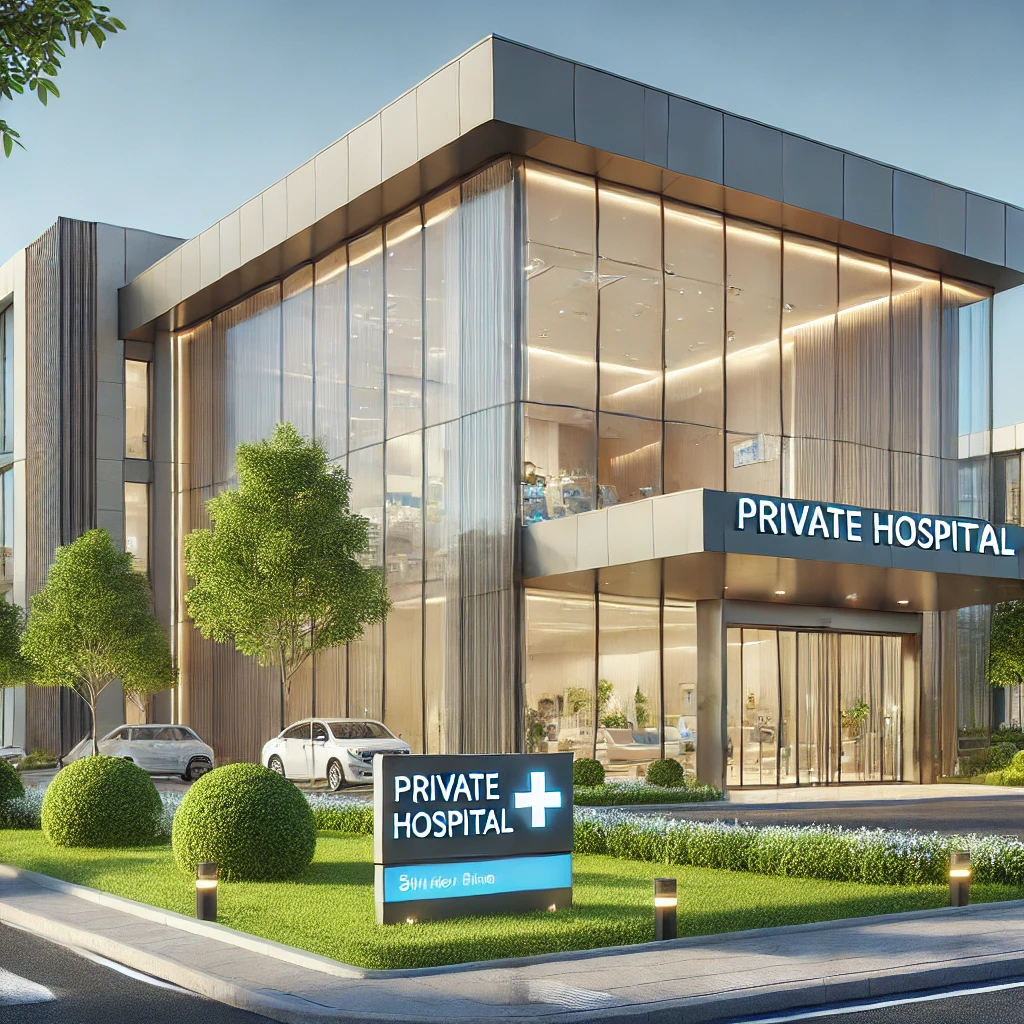
The Importance of Accessible, High-Quality Healthcare for All
Healthcare is a fundamental right that every individual should have access to. It’s essential that this care not only be available, but also of the highest quality—safe, empathetic, communicative, understanding, and effective. In this blog, I’ll share my personal perspective, drawing from my experiences with both private healthcare and NHS support, and reflect on the significance of comprehensive, patient-centred care.
Healthcare in Turkey: Accessibility and Affordability in Private Healthcare
In Turkey, private healthcare is far more accessible compared to the UK. Despite the country’s economic challenges, a visit to a private hospital in Turkey costs roughly the same as a couple of weeks’ worth of groceries—still a significant expense, but manageable for most people. For my family, private healthcare became the norm, even for common issues like asthma attacks and stomach pains, making it accessible to many Turkish families, including those without significant wealth.
Private Healthcare in Turkey vs. the UK: A Personal Experience of Affordable Care
Throughout my life, I’ve relied on private healthcare for various needs, including childbirth, psychiatric care, and treatments for my child. The affordability and accessibility of private healthcare in Turkey are starkly different from the situation in the UK, where such services often require a higher income. In Turkey, my family could afford private healthcare, rent a three-bedroom house, and cover all our expenses despite modest earnings. This highlights how private healthcare can be more affordable and accessible in certain countries.
Private Healthcare vs. State Hospitals: A Comparison of Patient-Centred Care
In Turkey, the difference in care quality between private and state hospitals was striking. Private hospitals offered personalised care, shorter waiting times, and more focus on individual patients. Healthcare professionals in private hospitals had more time to address each patient’s needs, which led to a more patient-focused approach. This personalised care, where doctors took the time to understand my medical history and treatment goals, made all the difference in my healthcare experience.
Seeking Help for Postpartum Depression: My Experience with Private Healthcare

After struggling with postpartum depression, I sought immediate help from a private hospital. The healthcare professionals listened attentively to my concerns and provided a tailored treatment plan. Within 30 minutes of entering the consultation room, I was prescribed medication, including mood stabilisers and antidepressants, which helped me regain stability. This swift, thorough care allowed me to manage my mental health more effectively—something I found difficult to access upon returning to the UK.
Struggles with Accessing Medication for Depression and Anxiety in the UK
When I returned to the UK, I contacted my GP to request a prescription for the medication that had stabilised my mental health. Despite providing all necessary documentation, my GP refused to prescribe the medication I needed, citing policy restrictions. I was advised that I would need to wait over a year for therapy before any medication could even be considered. This delay had a detrimental impact on my mental health, and it was a battle to get the medication I had relied on for years.
The Cost of Private Healthcare in the UK: My Struggle to Access Treatment for Depression and Anxiety
The high costs of private healthcare in the UK were another barrier. Appointments with private doctors were quoted at £500, and therapy fees were equally expensive. This made it almost impossible for someone like me, struggling financially, to access the care I needed. After spending £400 on a private psychiatrist, I was told that while I could get the medication privately, it would require regular follow-ups, which meant additional costs. This left me feeling trapped, unable to get the care I needed without incurring further financial hardship.
The Immense Support from the NHS During My Latest Mental Health Crisis
While I’ve had my challenges with accessing mental health care, I’ve also experienced tremendous support from the NHS during my most recent mental health crisis. It’s important to emphasise that the NHS is not broken, but it is under immense strain. The system, though facing significant challenges, still provides life-changing care when accessible, particularly in the field of mental health.
I’ve been fortunate to benefit from personalised healthcare programmes such as The Mount, a specialist mental health clinic, and Structured Clinical Management (SCM), which have been nothing short of transformative. These services provided me with the tailored care and professional guidance that I desperately needed, offering a structured approach to managing my mental health.
However, reaching this point was not easy. The journey to accessing these crucial services was long, and it took far more out of me than I ever expected, including a complete mental breakdown and a subsequent hospital admission. While these services have undeniably changed my life for the better, it should not have taken such an extreme experience to get the help I needed.
This underscores the urgent need for increased funding, resources, and better accessibility to such services across the NHS. While the NHS plays a crucial role in mental health care, the strain on its resources means that many people, like myself, often have to endure significant personal hardship before they can access the care they need.
The Debate Over Privatisation of Healthcare: My Experience in a Medicinal Cannabis Clinic

During my time working in a medicinal cannabis clinic, I experienced the private healthcare system from the other side, as a patient. While the medication was costly, consultations were more affordable, ranging from £20 to £100. This experience led me to reflect on the potential benefits of partial privatisation in the healthcare system. Greater access to private healthcare could increase timely care and make services more affordable for those who need them most.
The Strain on NHS Services: Long Waiting Times and Access to Urgent Care
The NHS is under immense strain, with long waiting times becoming increasingly common. I’ve personally spent hours waiting in A&E, and recently, my mother received a letter informing her of a 38-week waiting list for urgent pain management. According to the BMA, the average waiting time for a Referral to Treatment now averages 14.4 weeks, an increase from 8.4 weeks in January 2024. These delays highlight the critical need for more resources in the public healthcare system to meet the growing demand for services.
Making Private GP Surgeries, Private Dentists, and Private Doctors More Accessible to Ease NHS Strain
To help alleviate pressure on the NHS, it is essential to make private healthcare services, such as GP surgeries, private dentists, and private doctors, more accessible. By increasing access to these services, we can reduce waiting times, improve patient care, and free up NHS resources for more urgent and complex cases. A more balanced healthcare system, where private and public healthcare services work in tandem, could ensure a smoother healthcare journey for patients.
Conclusion: Balancing Private and Public Healthcare for a Better System
In conclusion, making private healthcare services more accessible isn’t just about choice; it’s about ensuring the NHS can focus its limited resources on the most critical cases. Encouraging collaboration between private and public healthcare systems could help reduce waiting times, improve patient care, and create a more efficient and effective healthcare experience for all. While the NHS remains a vital part of the UK’s healthcare system, a more balanced approach involving private healthcare services could provide the key to a better healthcare future.
The Importance of Accessible Healthcare and Mental Health Support
Ensuring healthcare is accessible to everyone is essential, but it’s just as important to improve the quality and timeliness of care. The challenges I’ve faced with accessing stabilising medication, navigating complex healthcare processes, and waiting for mental health support have profoundly impacted my well-being. The lack of access to timely, patient-centred care highlights the need for more efficient healthcare systems that prioritise individual needs, particularly in the realm of mental health.
